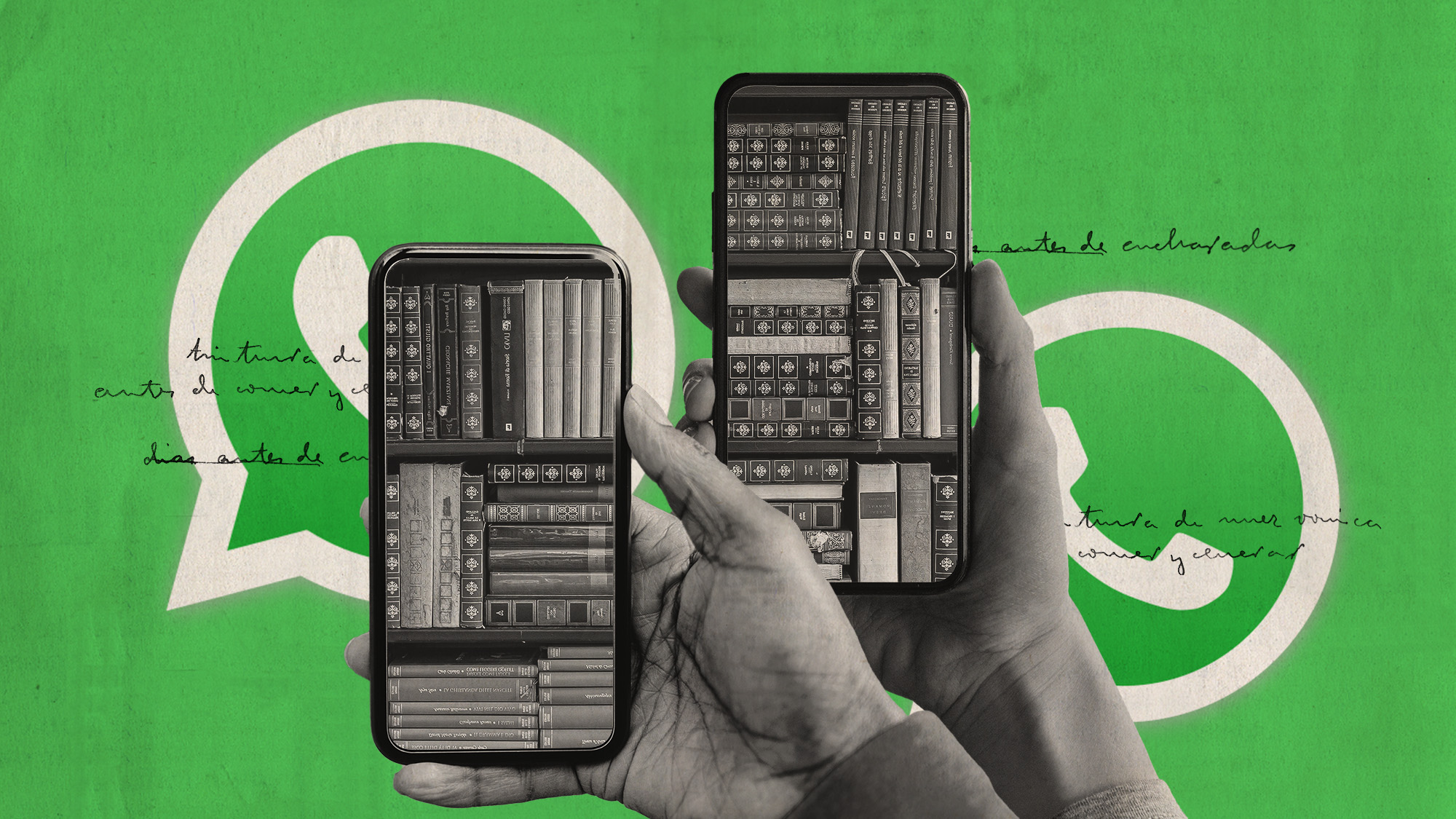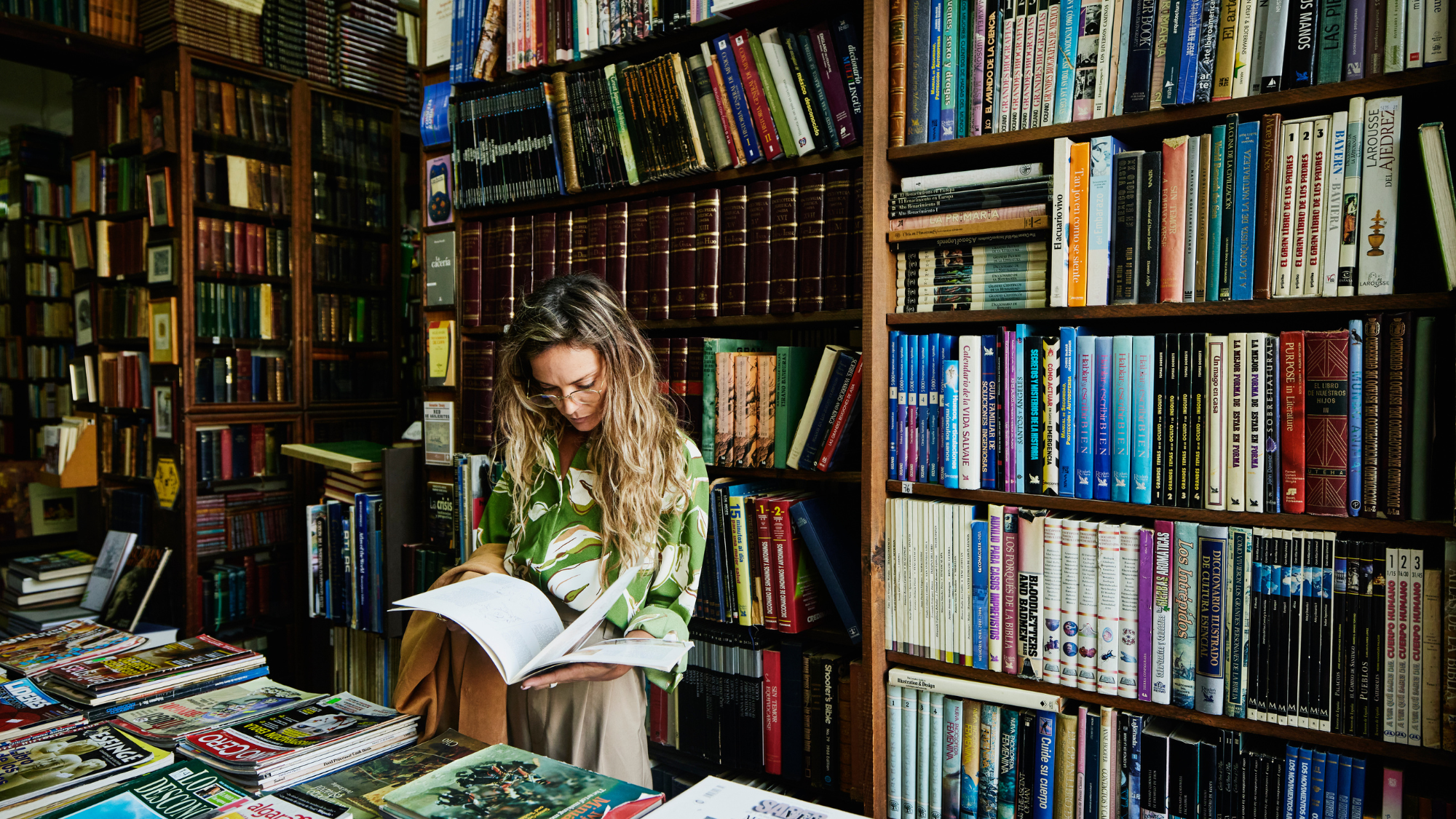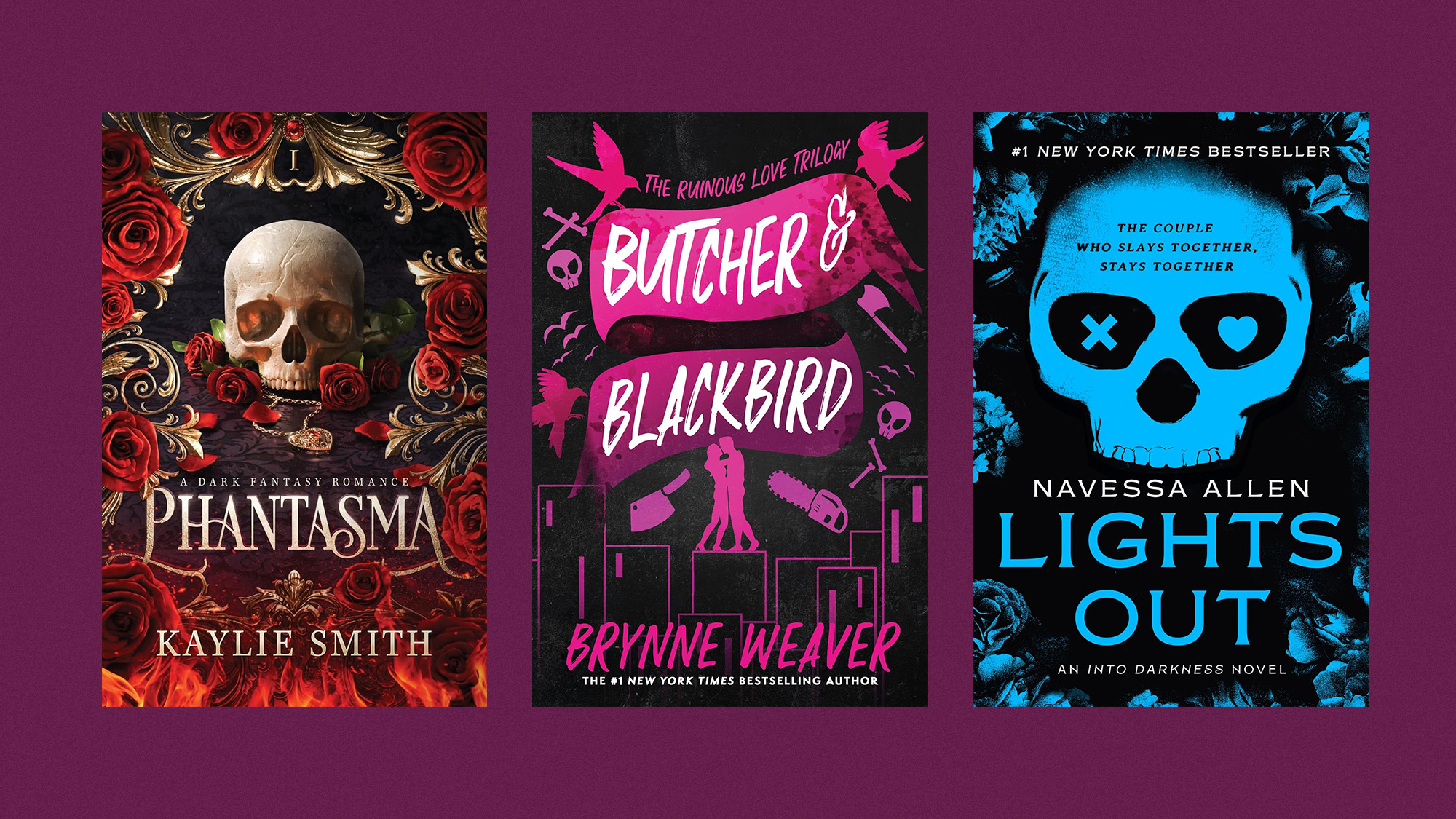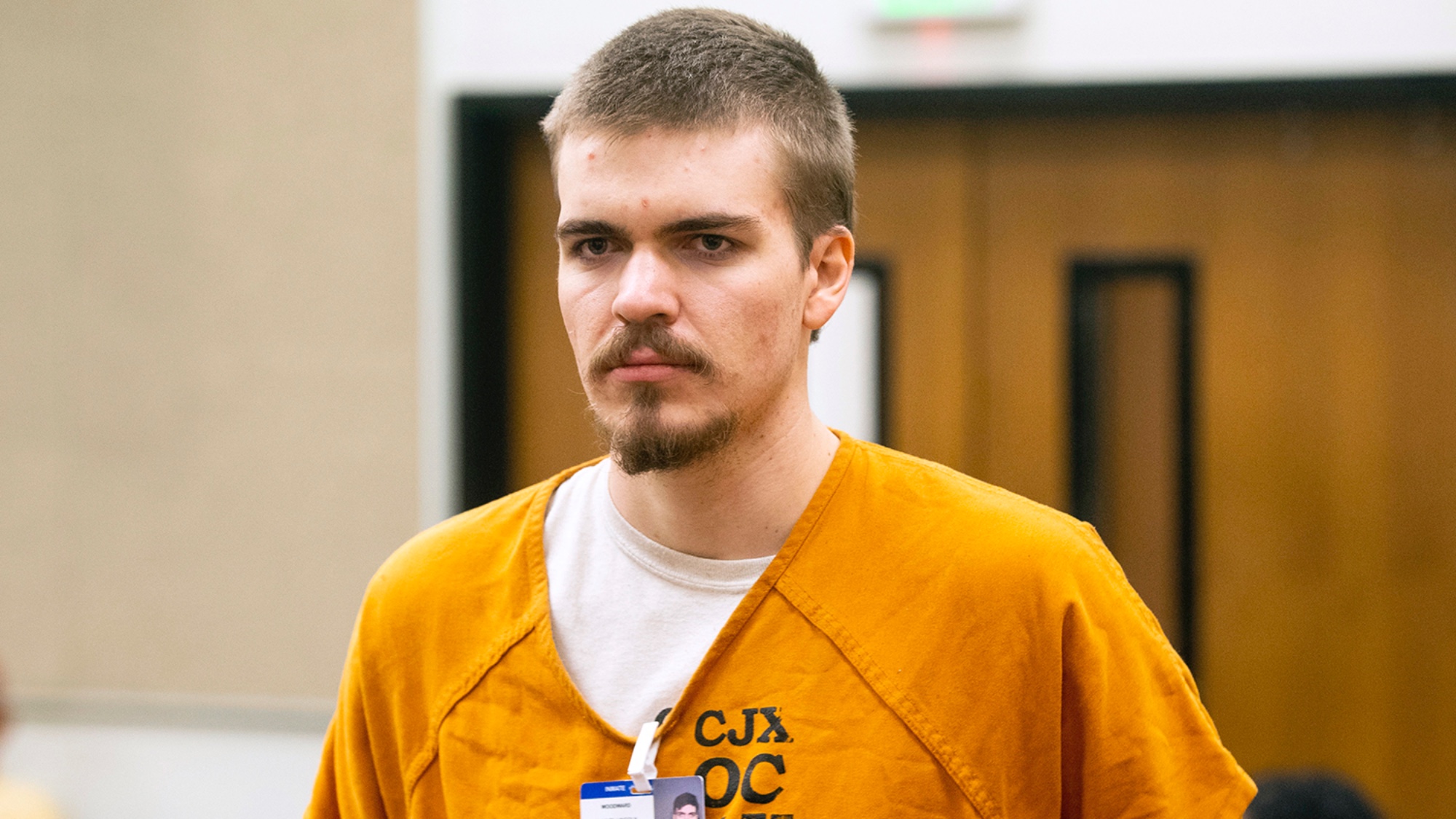The rise of the WhatsApp novelists
Why authors in Zimbabwe are channelling Dickens by serialising their novels through the messaging app

A free daily email with the biggest news stories of the day – and the best features from TheWeek.com
You are now subscribed
Your newsletter sign-up was successful
Charles Dickens published most of his novels in monthly magazine instalments, but if he was around now he might do the same on WhatsApp.
The messaging app has "proven to be a boon" for authors in Zimbabwe as the country's traditional publishing industry "falters", said the Financial Mail. Aspiring writers are able to charge directly for their services by "leveraging" the app's popularity and turning it into "a go-to for avid readers".
Paying the rent
Kingston Dhewa is "one of the new crop" of authors in Zimbabwe selling novels to fans on WhatsApp, said Al Jazeera. The trend "really took off" during the Covid pandemic, when authors grew an audience with serialised stories, typically released "one chapter at a time".
The Week
Escape your echo chamber. Get the facts behind the news, plus analysis from multiple perspectives.

Sign up for The Week's Free Newsletters
From our morning news briefing to a weekly Good News Newsletter, get the best of The Week delivered directly to your inbox.
From our morning news briefing to a weekly Good News Newsletter, get the best of The Week delivered directly to your inbox.
Dhewa initially joined a WhatsApp group for "budding writers" and felt he "could do a much better job" than the authors there, so he wrote a story and submitted it to the group. "People encouraged me to keep writing," he said. He charged readers $2 for his first finished book and "earned enough money to pay rent and buy food for his family". Since then he has written 43 novels, which were published through WhatsApp groups.
The first few chapters of a book are often shared for free to attract readers and build interest. "I now have four groups that follow my writing on WhatsApp," said Dhewa. The app has a limit of 1,024 members per group, so he has to create new groups as his popularity grows.
Another WhatsApp author, Pamela Ngirazi, has more than 21,000 followers on WhatsApp and prefers sharing her stories in a WhatsApp channel rather than a group. She shared chapters one to 20 of a recent romance novel to the channel for free and then charged for the remainder of the book.
Prestigious prizes
Harsh economic realities in Zimbabwe created the conditions for this new form of publishing. The "economy has tanked" and "high inflation has eroded purchasing power for the majority", while the high cost of data "forces many Zimbabweans to use WhatsApp as a social tool".
A free daily email with the biggest news stories of the day – and the best features from TheWeek.com
All the same, WhatsApp is not considered a "serious" threat to traditional publishing "because of the possibility of breaching industry standards", Philip Chidavaenzi, a Zimbabwean author and publisher, told Al Jazeera. Publishing is a "very sensitive area" requiring a "vigorous gate-keeping process to ensure quality control", whereas "anyone can publish anything on WhatsApp, good or bad". And "how much are you going to sell" through WhatsApp? Can you "sell enough to be able to purchase a house"?
Maybe not at this stage, but the platform can help win you a prestigious literary prize. Iranian Kurdish refugee Behrouz Boochani wrote his memoir "No Friend But the Mountains: Writing from Manus Prison" on WhatsApp as an asylum seeker in an Australian detention centre. The book won the 2019 Victorian Prize for Literature, said Time, and also "scooped up" the prize for non-fiction, netting him a total of A$125,000 (£65,000).
Meanwhile, Zimbabwe's Gen Z continue to snap up books through the messaging app. "I can't sleep without a daily dose," Natasha Pumu told the Financial Mail as she devoured the latest chapter from one of her favourite authors on WhatsApp.
Chas Newkey-Burden has been part of The Week Digital team for more than a decade and a journalist for 25 years, starting out on the irreverent football weekly 90 Minutes, before moving to lifestyle magazines Loaded and Attitude. He was a columnist for The Big Issue and landed a world exclusive with David Beckham that became the weekly magazine’s bestselling issue. He now writes regularly for The Guardian, The Telegraph, The Independent, Metro, FourFourTwo and the i new site. He is also the author of a number of non-fiction books.
-
 The environmental cost of GLP-1s
The environmental cost of GLP-1sThe explainer Producing the drugs is a dirty process
-
 Greenland’s capital becomes ground zero for the country’s diplomatic straits
Greenland’s capital becomes ground zero for the country’s diplomatic straitsIN THE SPOTLIGHT A flurry of new consular activity in Nuuk shows how important Greenland has become to Europeans’ anxiety about American imperialism
-
 ‘This is something that happens all too often’
‘This is something that happens all too often’Instant Opinion Opinion, comment and editorials of the day
-
 Book reviews: ‘Hated by All the Right People: Tucker Carlson and the Unraveling of the Conservative Mind’ and ‘Football’
Book reviews: ‘Hated by All the Right People: Tucker Carlson and the Unraveling of the Conservative Mind’ and ‘Football’Feature A right-wing pundit’s transformations and a closer look at one of America’s favorite sports
-
 Wuthering Heights: ‘wildly fun’ reinvention lacks depth
Wuthering Heights: ‘wildly fun’ reinvention lacks depthTalking Point Emerald Fennell splits the critics with her sizzling spin on Emily Brontë’s gothic tale
-
 Book reviews: ‘Vigil: A Novel’ and ‘Fear and Fury: The Reagan Eighties, the Bernie Goetz Shootings, and the Rebirth of White Rage’
Book reviews: ‘Vigil: A Novel’ and ‘Fear and Fury: The Reagan Eighties, the Bernie Goetz Shootings, and the Rebirth of White Rage’Feature Taking on the space between life and death and a look back at a 1984 shooting that shocked New York City
-
 The best fan fiction that went mainstream
The best fan fiction that went mainstreamThe Week Recommends Fan fiction websites are a treasure trove of future darlings of publishing
-
 Must-see bookshops around the UK
Must-see bookshops around the UKThe Week Recommends Lose yourself in beautiful surroundings, whiling away the hours looking for a good book
-
 Book reviews: ‘The Mattering Instinct: How Our Deepest Longing Drives and Divides Us’ and ‘Family of Spies: A World War II Story of Nazi Espionage, Betrayal, and the Secret History Behind Pearl Harbor’
Book reviews: ‘The Mattering Instinct: How Our Deepest Longing Drives and Divides Us’ and ‘Family of Spies: A World War II Story of Nazi Espionage, Betrayal, and the Secret History Behind Pearl Harbor’Feature The pursuit of ‘mattering’ and a historic, devastating family secret
-
 The best dark romance books to gingerly embrace right now
The best dark romance books to gingerly embrace right nowThe Week Recommends Steamy romances with a dark twist are gaining popularity with readers
-
 Book reviews: ‘American Reich: A Murder in Orange County; Neo-Nazis; and a New Age of Hate’ and ‘Winter: The Story of a Season’
Book reviews: ‘American Reich: A Murder in Orange County; Neo-Nazis; and a New Age of Hate’ and ‘Winter: The Story of a Season’Feature A look at a neo-Nazi murder in California and how winter shaped a Scottish writer